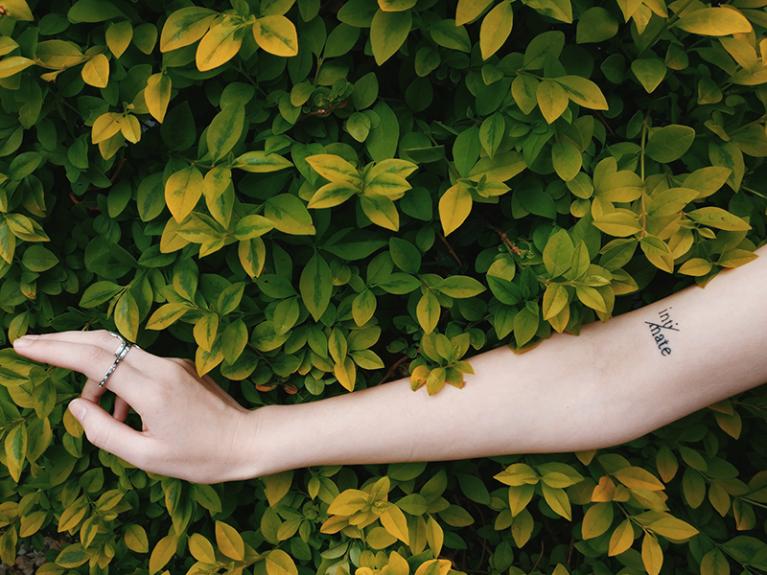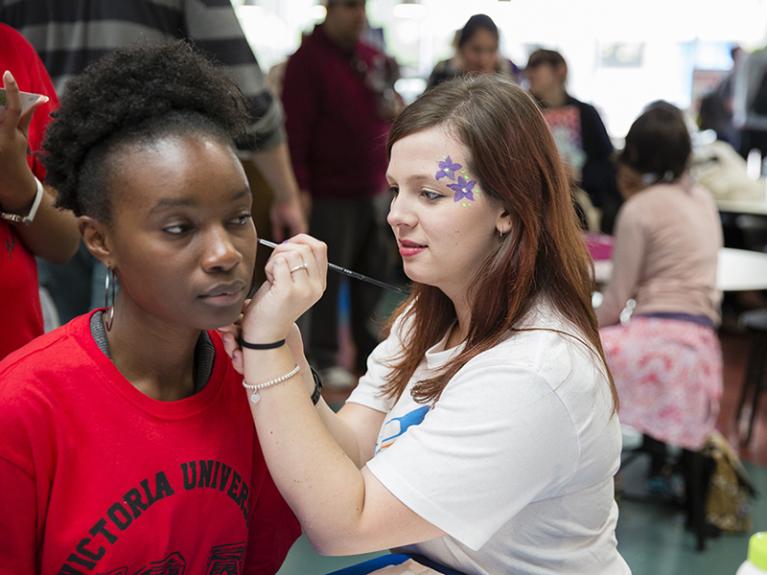If I use SPF will I still get my Vitamin D? 10 weird skin tips & busted myths
Your skin tells a lot about you – from laugh lines reflecting the good times, to a salty sheen from a summer at the beach.
But don’t take your heaviest organ lightly. Thanks to our industry expert – Dermal Clinician and VU lecturer Jennifer Byrne – we answer your burning questions, provide timely tips, and bust a few myths for the best of summer skin health.

10 weird tips & busted myths!
1. Cover up
Not so weird, but hear us out! What you may not know about is that recent evidence reveals higher SPF sunscreens (of 50+) can give you a false sense of security which causes more damage long term.
Dermal Clinician Jennifer Byrne tells us: “People who use high SPF sunscreen may think they can stay out in the sun longer and forget to take other protective measures like seeking shade.
Covering up with clothing is always preferable to relying solely on sunscreen.”
2. The best kind of sunscreen is…
The one that you prefer! There are two types – mineral and chemical/synthetic sunscreens. So what’s the difference and which one is better?
As long as you reapply regularly and use them year-round, it’s a personal choice. To help you decide:
- Mineral sunscreens (zinc and titanium-based) are designed to block UV, deflecting or scattering the sun’s harmful rays. They have almost no risk of irritating skin. They are thicker and need more liberal application – and may leave a white cast (although the best ones on the market will be near invisible).
- Synthetic sunscreens allow the UV to permeate your skin – but neutralise it by converting into heat and 'deactivating' it. They are thinner and tend to be preferred for water-resistant formulas, but can irritate if you have sensitive skin.
3. What about Vitamin D?
Vitamin D is important because it helps your bones absorb calcium – keeping them strong and helping avoid conditions like osteoporosis (brittle bones).
But Vitamin D is manufactured when your skin is exposed to sunlight. And aren’t we trying to avoid the sun’s damaging rays?
Ms Byrne says:
Vitamin D production only requires about 15 minutes of direct sunlight to an area like the face and forearms (not the whole body).
"We don’t usually have sunscreen on during all hours of sunlight over the whole body, so it's as easy as sitting outside in the morning sunlight to enjoy your coffee or juice. When you weigh up the pros and cons, letting the sun beat down on your skin is not the way to satisfy your D requirements.”
Foods such as fatty fish (salmon and tuna) are also good sources of Vitamin D. It’s also present in egg yolks and cheese.
If you discover you’ve got a Vitamin D deficiency, your doctor is more likely to suggest supplements than risking more time in the sun.
4. SPF – do I need to understand it?
“You need to know your own skin type, limitations and how SPF actually works,” says Ms Byrne. “This will help you reduce the risk of skin cancer.”
SPF – or Sun Protection Factor – measures a sunscreen's ability in preventing UVA and UVB rays from damaging the skin, and the amount of time it takes to do so.
For example, if it usually takes five minutes for your unprotected skin to start turning red, using an SPF 15 sunscreen correctly will prevent it from reddening for fifteen times that - or just over an hour.
Sunscreen is not a ‘set and forget’ – when you’re out and about, reapply!
Want to find out how much sunscreen you should be using - one teaspoon or five? Use the SunSmart calculator tool to find out.
5. How does your skin colour impact your skin health?
Melanin is the pigment that gives your skin its colour. The more melanin you have, the darker your skin, and the greater protection you have from UV light.
But don't think you can’t get skin cancer just because your skin is naturally darker. Even if you don’t have any visible freckles or moles, you can still have serious damage that can lead to cancer. Certain skin cancers are caused by factors other than UV, such as genetics or environmental influences, and may occur on parts of the body rarely exposed to the sun.
6. Vitamin E – can it really ‘fix’ your skin?
Evidence suggests Vitamin E can help repair skin conditions and even help with sunburn and peeling – although it won’t reduce your risk of skin cancer.
But bursting open those little capsules and slathering it on won’t do a thing. Vitamin E capsules are for consumption; it's the topical Vitamin E lotions you should rub on to moisturise, cool and repair skin.
7. Does chocolate really give you zits?
As Ms Byrne says: “There is evidence to suggest that a diet high in sugars and fats can affect hormone regulation – which promotes acne in some people.
Making sure that you have a balanced diet with lots of water, fresh fruit and vegetables, and good sources of fat and protein does indeed keep the skin healthy.”
Partying and lack of sleep can also affect hormones and skin health and appearance.
8. Is ‘wind burn’ a thing?
Repeat after me: wind burn is not a thing!
Your grandparents or parents might talk about this weird phenomenon. But if you turn red after a windy day outdoors, it's likely that it didn’t seem ‘hot enough’ to cover up sufficiently, and you are officially sun burnt!
Don’t fall into this trap – the UV index may be up to 80% its usual severity when the sun is behind clouds or fog.
9. Love a tan – but don’t want to turn into a leather bag?
If you love a tan, hopefully you’ve figured out how spray tans work by now. Because (preach alert!) there is no such thing as a safe sun tan. Tanning puts you at serious risk of skin cancer, and who wants to age prematurely?
Check out Aura at VU, our hair, beauty & massage salon for treatments and consultations with final year students, closely supervised by industry professionals. Did someone say $10 spray tans – plus 50% discount on all treatments for VU staff and students?
10. Be a sun smarty with these awesome apps & resources
Download these great apps and check out the latest technology that detects and displays your daily UV risk:
- Sunsmart app – personalise to your location, skin type and more
- Sundicator stickers
- My UV patch
- Circuit Breaker – tiny wearable UV sensor that sticks to your nail – it syncs to your phone and shares vital data.

What else can I do to keep my skin schmick?
VU’s Dermal Clinic offers a variety of inexpensive and free skin consultations and assessments on conditions like ageing, photo (sun) damage, acne, rosacea and psoriasis. Students learn and practise in a real clinical setting with supervision from industry experts.
Always follow the Cancer Council’s Slip, Slop, Slap, Seek, Slide advice.
And if you suspect a change to a freckle, mole or lesion or a change in your skin that concerns you, see your doctor.